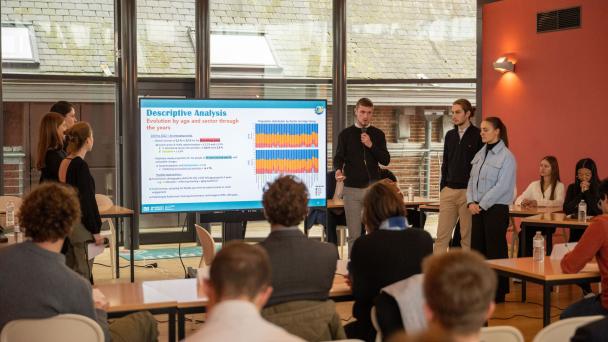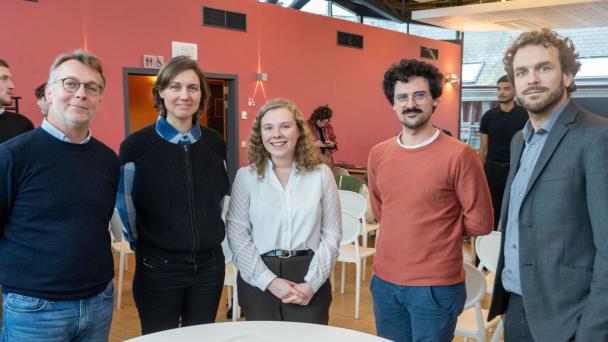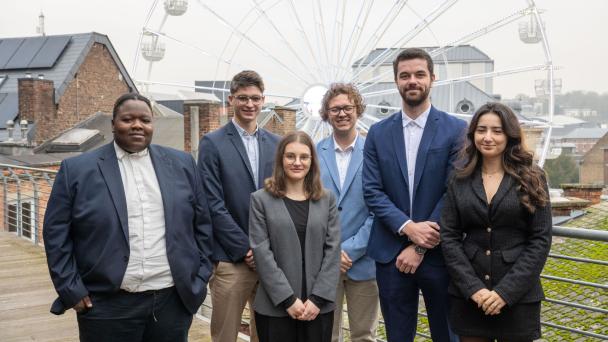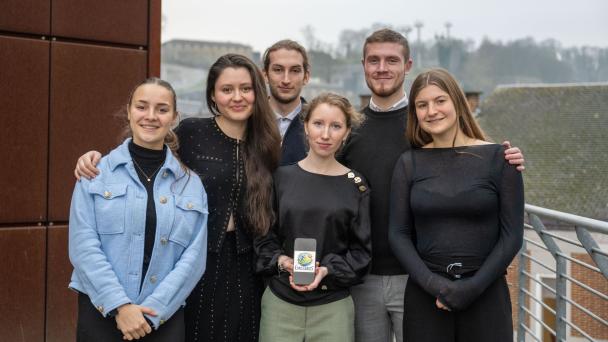The Department of Economics brings together talent in the discipline of economics to advance knowledge through research, teaching and outreach to society at large. It stimulates inter-university and interdisciplinary collaborations, as well as those forged with economic players in business, administration, and international public and non-governmental organizations.
Presentation
The Department has a dozen full-time academics, around 20 PhD students, researchers and post-docs, and one administrative staff member.
It is responsible for organizing teaching in Bachelor's, Master's and PhD economics. Specifically, he co-organizes with the Management Department the Bachelier en Sciences Economiques et de Gestion and, with UCLouvain, the Master en Sciences Economiques, as well as the Specialized Master in International Economics and Development Economiques.
Members are engaged in research within the DEFIPP Research Institute and around three main themes: development economics, regional economics and economic policy, and macroeconomics and financial economics.
Find out more about the Economics Department
Spotlight
News
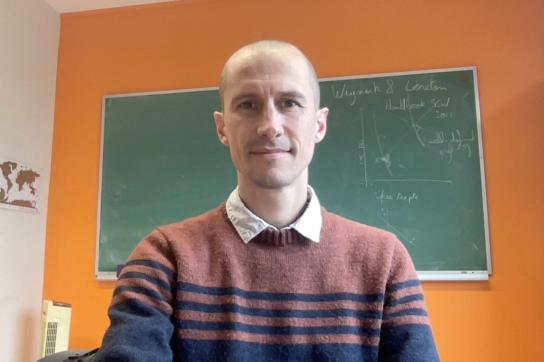
Benoit Decerf: An expert committed to poverty analysis at UNamur
Benoit Decerf: An expert committed to poverty analysis at UNamur
Measuring poverty and well-being, to better understand development inequalities between countries and better assess development policies. This is the theme on which Benoit Decerf, assistant professor in the Department of Economics and researcher at UNamur's Development Economics Research Center, is working. He has been involved in improving the poverty indicators used by the World Bank.
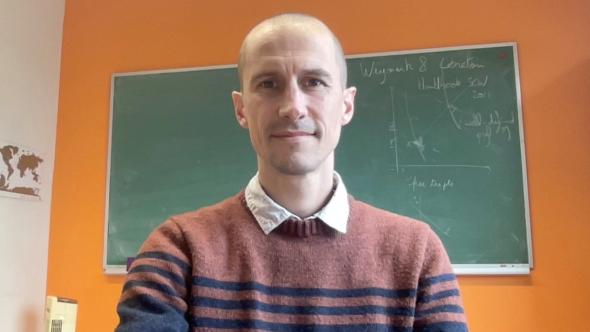
Benoit Decerf, holder of a PhD in cotutelle between UCLouvain and the University of Bielefeld (Germany), joined the University of Namur in 2016. His career path led him to significant experience as a researcher, notably from 2020 to 2025, when he was seconded to the World Bank's research center in Washington DC. In this context, he contributed to the development of tools designed to measure poverty and well-being. The aim? To better understand development inequalities between countries and better assess development policies.
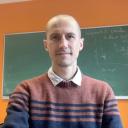
Historically, development has been measured in a purely monetary way, first by average income, then by trying to take account of income inequalities, whether via inequality indicators or via poverty indicators focusing on the least well-off. Subsequently, several philosophers have stressed the importance of health, education and other dimensions of well-being that are difficult to measure with monetary units.
.
"Indeed, it seems difficult to quantify a person's state of health in euros. To address the limitations of monetary indicators, alternatives such as the Human Development Index or multidimensional poverty measures have been proposed to include aspects such as life expectancy and access to education," he continues. At the Development Economics Research Center, Benoit Decerf's work is part of these efforts to improve development indicators.
His stint at the World Bank allowed him to take part in improving the indicators used by this institution. "In addition to measuring extreme poverty, defined by the threshold of $2.15 per day per person, which the United Nations would like to see fall below 3% of the world's population by 2030, the World Bank also measures "shared prosperity". This concept is intended to be more inclusive than poverty, by taking into account the incomes of everyone, not just the poor, but maintaining the importance of inequalities by weighting the incomes of the least well-off more heavily", explains the economics researcher. With his co-authors, Benoit Decerf has therefore proposed a new indicator, the Prosperity Gap, which aims to be both simple to explain and mindful of inequalities.
This example illustrates the pragmatic approach followed in his research. Rather than looking for the ideal indicator, Benoit Decerf seeks to build on existing indicators, identifying their main limitations, and seeking to improve them while taking into account the constraints faced by practitioners.
Secondary school enrolment: understanding parents' choices
Benoit Decerf is also working on the secondary school enrolment system. He is analyzing the mechanisms used to allocate places, based on algorithms, questioning their ability to respect parents' priorities, as well as the incentives and behaviors they generate for parents when they have to transmit their preferences between schools. It therefore investigates the manipulability of these algorithms, in order to understand their implications for the parental choice process.
Teaching: A game theory platform
Beyond research, Benoit Decerf teaches game theory as part of undergraduate training at UNamur. Through project-based teaching, he launched the Game Theory Platform, an internet platform enabling students to experiment with game theory concepts by playing against each other. This project was financed by a PUNCH fund in 2018, in collaboration with CS Lab asbl, an association of the Faculty of Computer Science dedicated to technological innovation and IT support.
Training
Discover our courses in economics, management, communication and political science.
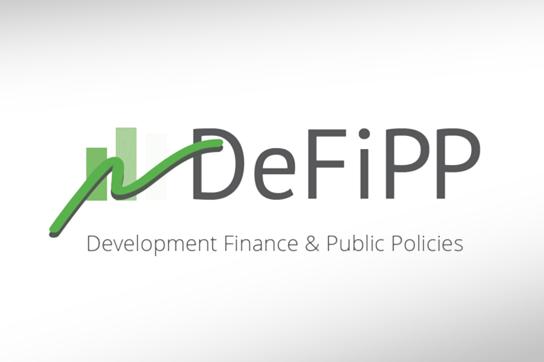
Media and politics: a prestigious international collaboration
Media and politics: a prestigious international collaboration
For the past ten years, Professor Guilhem Cassan has been working on the question of the link between the media and political life in collaboration with Professor Julia Cagé, who has just been awarded the highly prestigious Yrjö Jahnsson Prize, which recognizes the best European economist under the age of 45. The UNamur Department of Economics (EMCP Faculty) and the DeFiPP Institute (CRED Centre) have a network and recognized international expertise in development economics and environmental economics.
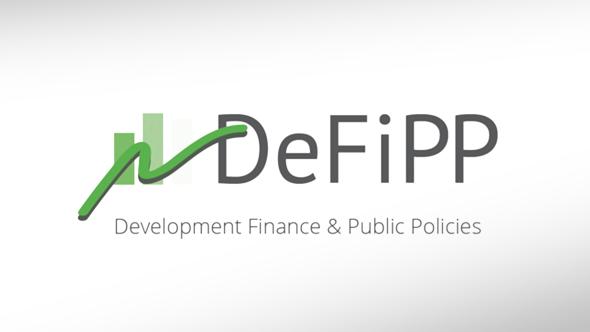
Guilhem Cassan - Department of Economics, EMCP Faculty and Institut DeFiPP (CRED) at the University of Namur - and Julia Cagé - Department of Economics, Sciences Po Paris -, are studying in particular how political life influences the newspaper market in the USA and India, using newly collected data and cutting-edge econometric methods.
This link through research feeds back into the teaching of the economics department, which has a long tradition of integrating cutting-edge research and teaching. Professor Julia Cagé has been a guest lecturer on several occasions in the EMCP Faculty courses, in this case in the Block 2 Integrated Teaching Unit and in research seminars organized by the Institut DeFiPP.
The Yrjö Jahnsson Prize is awarded every two years to a European economist under the age of 45 "who has made a contribution in theoretical and applied research of outstanding importance to the study of economics in Europe". The 2025 prize is awarded jointly to Julia Cagé and David Yanagizawa-Drott for their work on the political economy of the media. Julia Cagé's most recent book, "Une histoire du conflit politique", co-authored with Thomas Piketty, had an extraordinary media and political impact in France in 2023.
The DeFiPP Institute
The Development Finance and Public Policies Institute (DeFIPP) consolidates the research work carried out in three pre-existing centers:
- Centre de recherche en économie du développement (CRED)
- Centre de recherche en finance et gestion (CeReFiM)
- Centre de recherche en économie régionale et politique économique (CERPE)
around three main areas of research: development economics, public policies and regional economics and finance, and monetary economics.
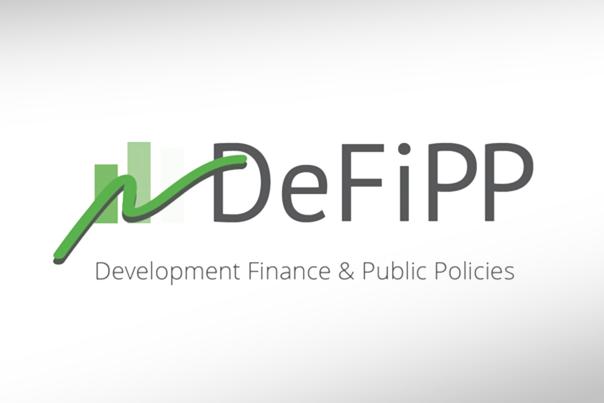
EMCP Faculty | Studies in the Department of Economics
Studying economics means understanding the fundamental dimension of how businesses and our society work, so that you can advise and act as an expert and responsible decision-maker.
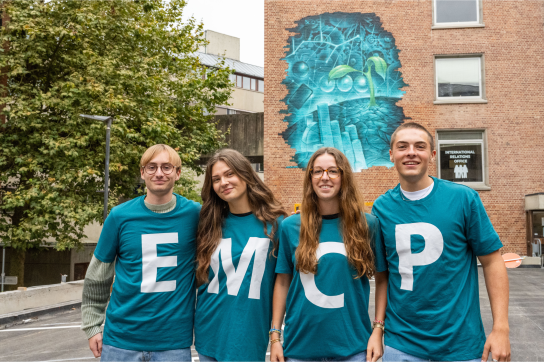
EMCP Faculty: Working together to transform
EMCP Faculty: Working together to transform
In September 1961, a few professors and fifteen students inaugurated the Faculty of Economic and Social Sciences at the University of Namur. Later renamed the Faculté des sciences économiques, sociales et de gestion, or FSESG, in over 60 years of existence, it has trained thousands of students who have become experts and decision-makers in key fields: economics, management, communication and political science. In September 2024, it changed its name to EMCP or Faculté Économie Management Communication sciencesPo. A change of name, symbol of a visionary mutation.
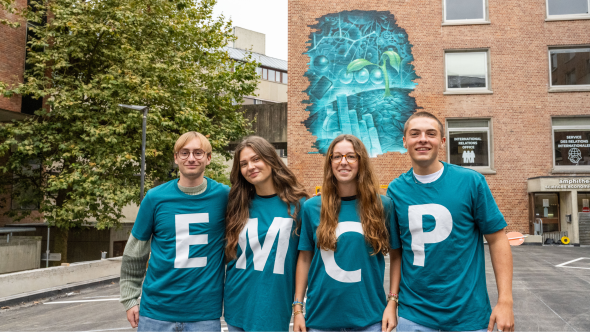
This article is taken from the "The day when" section of Omalius magazine for December 2024.
Four major teaching and research disciplines have marked the Faculty's development and become its pillars over the years: economics and political and social sciences first, then management and communication. "In its early days, the Faculty of Economic, Social and Management Sciences, created by Father Camille-Jean Joset, was united around social sciences and economics," recalls Pietro Zidda, Dean of the EMCP Faculty. "Then, the various fields developed. Management took off, enrolments in political science and communications soared. We were careful to maintain a spirit of collaboration between each of our programs". Far from the usual silos, the Faculty today makes it a point of honor for its chosen disciplines to collaborate, question and nurture each other in order to develop the skills of students and researchers so that together they can contribute to the challenges of a society in transition.
Three key missions
The EMCP Faculty is committed to three major missions. The first is to train responsible experts and decision-makers, through rigorous, hands-on teaching that stimulates critical thinking and openness to the world. It also aims to conduct ambitious, interdisciplinary research with a strong scientific impact, feeding into teaching and innovation. Finally, the EMCP Faculty wishes to act as a responsible player in societal development, sharing knowledge and contributing to informed decisions at regional, national and international levels.
It is therefore quite natural that the FSESG has become the EMCP Faculty, a name now incorporating communication and political sciences and reflecting the importance they have acquired in recent years. Four disciplines united to prepare students and researchers in a transdisciplinary way for the challenges of tomorrow.
Collaboration, transdisciplinarity and unity
The spirit of collaboration is firmly rooted at the heart of the Faculty, which strives to develop transdisciplinary approaches to meet the complex challenges of a society in transition. "To meet these challenges, a solution from a single discipline is no longer enough. We need to think more broadly, with an approach that transcends disciplines," explains Anne-Sophie Collard, Vice-Dean of the EMCP Faculty. A sentiment shared by Zora Gilet, a management engineering student: "This new name above all brings coherence to the Faculty's image and visibility for all the courses on offer. It also represents the intra-faculty diversity that we wish to promote at all levels."
This vision is also accompanied by an internal reorganization, with the creation of four thematic schools or schools: UNamur School of Economics (NSE), UNamur School of Management (UNSM), UNamur School of Social Sciences, Politics and Communication and UNamur School of Evening Studies in Economics and Management. These schools aim to strengthen synergy between disciplines, while promoting a pedagogy that integrates cross-disciplinary skills and innovative working methods. Soft skills, for example, are now systematically integrated into projects, to prepare students to respond to societal challenges in a collaborative and creative way. "I think this change helps to concretize and recognize all the large-scale projects that have been set up in recent years," explains Zora. It's an expression of a desire to develop and innovate, which is more than positive today. I consider myself lucky to be able to witness this change and proud to be part of this community."
"EMCP aims to be the catalyst lever for a future where walls are broken down and barriers between disciplines abolished as much as possible, to provide strong solutions to societal problems," concludes Pietro Zidda. This new name therefore goes beyond mere naming: it symbolizes a renewed commitment to transforming the way graduates are trained, giving them the tools they need to provide strong, coherent solutions to major contemporary challenges.
Innovative and conclusive teaching experiments
Within the Faculty, various projects and teaching experiments illustrate this EMCP vision. Examples?
Learning by doing: an approach that offers immersion in concrete projects from the first year, combining knowledge and cross-disciplinary skills to respond to real-life challenges.
Regards croisés: this project invites students and teachers to explore a topical issue from a variety of disciplinary angles, enriched by exchanges with experts in the field at a major final conference.
Dialogue between a dean and ChatGPT
To mark the name change, a fresco was erected on one of the Faculty's facades. The result? A work in shades of blue and green, where the four letters of the faculty are concealed. A young shoot evokes hope and sustainability, patterns of connections symbolize the interactions and complementarities between the various disciplines, a pendulum embodies the balance sought between them...

A little wink, the Dean of Faculty wondered how this fresco would be perceived by an outside audience: "This work is quite original compared to what we usually do. So I asked the artificial intelligence to give me its interpretation. And then, surprise, the answer was bluffing! ChatGPT perfectly identified the meaning and intentions of the project, as if it had read our initial brief", laughs the dean.
The EMCP Circle: students involved in change
Students have also been involved in this transformation, notably through their circles. Thus, the Cercle €co became the Cercle EMCP. "We were contacted by the Dean, who suggested that our Circle should bear the same name as the Faculty, and this seemed to us to be a perfectly natural move. We had many discussions with the dean and the vice-presidents of the Cercle. We put a lot of effort into the name change, but it was an extremely rewarding experience," explains Matthieu Dupuis, President of the Cercle EMCP. "The change may have come as a surprise to some students, but this new name enriches the Faculty's image by enhancing the value of all its courses of study. It embodies strong values and, in my opinion, represents our Faculty better than the old one."
This article is taken from the "The day when" section of Omalius magazine #35 (December 2024).
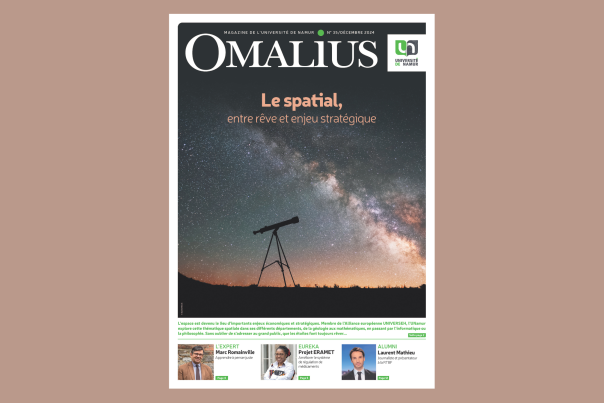
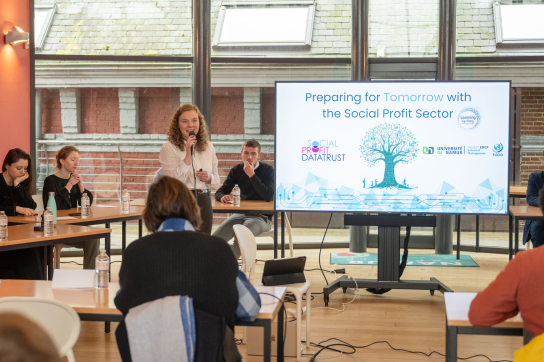
Training for action: data analysis for the social sector
Training for action: data analysis for the social sector
How can data analysis contribute to sustainable development and the social profit sector? This is the challenge answered by students in the Bachelor of Management Engineering program at the Faculty of Economics Management Communication sciencesPo (EMCP) at the University of Namur. On December 12, 2024, they presented their projects at the Namur Stock Exchange, after three months' work on data analyses carried out in collaboration with partners in the social profit sector. They explored themes essential to this sector and our society, as part of the "Data Analytics" course, taught by Claire Deventer in partnership with the King Baudouin Foundation and leading representatives of the social profit sector in Belgium.
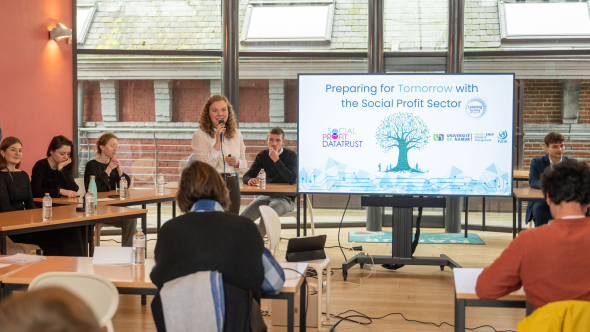
The Data Analytics course is an applied course implementing a pedagogy inspired by Service Learning and Learning by Doing. Divided into different teams, the students explored important challenges for the social profit sector and the sustainable development of our society, such as the care offered to the elderly or the match between the training offer and the work sector. These analyses were based, among other things, on data from the Social Profit Data Trust, a platform created by the King Baudouin Foundation in collaboration with representatives of the social profit sector: UNIPSO, Verso, Unisoc, BRUXEO and ConcertES. An immersive setting that enabled students to develop their data analysis skills while reflecting on the positive impacts that their talents in this practice could bring to society.
"The aim of this assignment is to enable students to put themselves in the shoes of real data analysts: analyzing data, proposing concrete solutions and communicating their results in a clear and impactful way, explains Claire Deventer, teacher of the course. "More than technical skills, data analysis also requires managerial, human and ethical skills. Students were coached to think about the impact their data analysis could have on society, and ways of making it as ethical as possible."
Inspired by the Service Learning philosophy where students learn by putting their skills at the service of society, the project spearheaded by Claire Deventer benefited from invaluable pedagogical support from Maxime Giegas, specialist in education for global citizenship and solidarity at the FUCID, Charlotte Sine, technopedagogue at the Faculty of Education and Training Sciences (FaSEF) as well as Benito Giunta, assistant at the Faculty EMCP.
Themes rooted in reality
The students explored three key themes for the social profit sector: an aging society, the changing labor market and the development of the social profit sector.
"Beyond the statistics, there's a human reality, stresses Mathieu de Poorter, economic advisor at UNIPSO and project partner. "As partners in the project, we wanted to see how students, sometimes far removed from our themes, could bring a fresh perspective and make relevant recommendations."
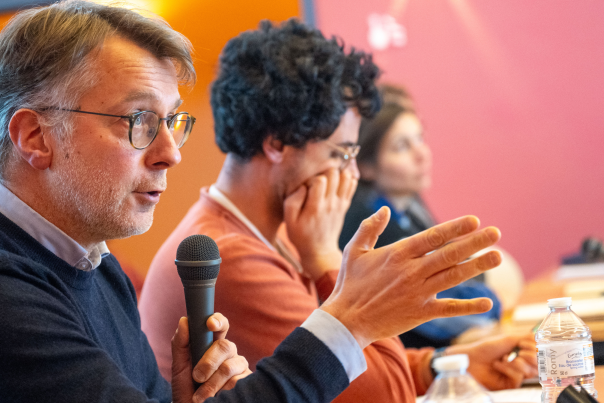
On December 12, 2024, after nearly three months of reflection and work on their theme, the students were able to deliver their analyses and best proposals for solutions. It was at the Namur Stock Exchange that the six student teams presented their work to the project partners, present to debate these important themes:
- Tine Holvoet, policy advisor, entrepreneurship and innovation at Verso Mathieu de Poorter, economic advisor at UnipsoQuentin Pivont, economic advisor at Unipso
- Emilien Leurquin, economic advisor at Unisoc
By highlighting concrete solutions for the social profit sector, this project illustrates how data analytics skills can contribute to and respond to societal and sustainability issues. "Seeing engineering students take an interest in social economy issues is not only inspiring, but essential for building bridges between the academic and professional worlds," enthuses Quentin Pivont.
"The aim of the project was to analyze data to produce a study, a model and come up with concrete solutions", explain Tanguy and Lénaïc, students in management engineering. "We were very challenged, but the teachers supervised us very well." For Ambre and Inès, also management engineering students, this project was a revelation: "This work enabled us to combine our knowledge of programming and analysis with direct feedback from professionals. It enabled us to refine our interests and better define what we like to do. It was a fairly substantial piece of work, but we're really proud of what we're going to propose."
Education for the common good
This innovative pedagogical project demonstrates how data analysis can be a powerful lever for tackling societal challenges and promoting sustainable development. By collaborating with key players in the social profit sector, students not only developed technical and managerial skills, but also became aware of the importance of their role as committed future professionals. This type of initiative perfectly illustrates the University's potential to connect academic knowledge, societal needs and concrete innovations to build a more equitable and sustainable future.

Benoit Decerf: An expert committed to poverty analysis at UNamur
Benoit Decerf: An expert committed to poverty analysis at UNamur
Measuring poverty and well-being, to better understand development inequalities between countries and better assess development policies. This is the theme on which Benoit Decerf, assistant professor in the Department of Economics and researcher at UNamur's Development Economics Research Center, is working. He has been involved in improving the poverty indicators used by the World Bank.

Benoit Decerf, holder of a PhD in cotutelle between UCLouvain and the University of Bielefeld (Germany), joined the University of Namur in 2016. His career path led him to significant experience as a researcher, notably from 2020 to 2025, when he was seconded to the World Bank's research center in Washington DC. In this context, he contributed to the development of tools designed to measure poverty and well-being. The aim? To better understand development inequalities between countries and better assess development policies.

Historically, development has been measured in a purely monetary way, first by average income, then by trying to take account of income inequalities, whether via inequality indicators or via poverty indicators focusing on the least well-off. Subsequently, several philosophers have stressed the importance of health, education and other dimensions of well-being that are difficult to measure with monetary units.
.
"Indeed, it seems difficult to quantify a person's state of health in euros. To address the limitations of monetary indicators, alternatives such as the Human Development Index or multidimensional poverty measures have been proposed to include aspects such as life expectancy and access to education," he continues. At the Development Economics Research Center, Benoit Decerf's work is part of these efforts to improve development indicators.
His stint at the World Bank allowed him to take part in improving the indicators used by this institution. "In addition to measuring extreme poverty, defined by the threshold of $2.15 per day per person, which the United Nations would like to see fall below 3% of the world's population by 2030, the World Bank also measures "shared prosperity". This concept is intended to be more inclusive than poverty, by taking into account the incomes of everyone, not just the poor, but maintaining the importance of inequalities by weighting the incomes of the least well-off more heavily", explains the economics researcher. With his co-authors, Benoit Decerf has therefore proposed a new indicator, the Prosperity Gap, which aims to be both simple to explain and mindful of inequalities.
This example illustrates the pragmatic approach followed in his research. Rather than looking for the ideal indicator, Benoit Decerf seeks to build on existing indicators, identifying their main limitations, and seeking to improve them while taking into account the constraints faced by practitioners.
Secondary school enrolment: understanding parents' choices
Benoit Decerf is also working on the secondary school enrolment system. He is analyzing the mechanisms used to allocate places, based on algorithms, questioning their ability to respect parents' priorities, as well as the incentives and behaviors they generate for parents when they have to transmit their preferences between schools. It therefore investigates the manipulability of these algorithms, in order to understand their implications for the parental choice process.
Teaching: A game theory platform
Beyond research, Benoit Decerf teaches game theory as part of undergraduate training at UNamur. Through project-based teaching, he launched the Game Theory Platform, an internet platform enabling students to experiment with game theory concepts by playing against each other. This project was financed by a PUNCH fund in 2018, in collaboration with CS Lab asbl, an association of the Faculty of Computer Science dedicated to technological innovation and IT support.
Training
Discover our courses in economics, management, communication and political science.

Media and politics: a prestigious international collaboration
Media and politics: a prestigious international collaboration
For the past ten years, Professor Guilhem Cassan has been working on the question of the link between the media and political life in collaboration with Professor Julia Cagé, who has just been awarded the highly prestigious Yrjö Jahnsson Prize, which recognizes the best European economist under the age of 45. The UNamur Department of Economics (EMCP Faculty) and the DeFiPP Institute (CRED Centre) have a network and recognized international expertise in development economics and environmental economics.

Guilhem Cassan - Department of Economics, EMCP Faculty and Institut DeFiPP (CRED) at the University of Namur - and Julia Cagé - Department of Economics, Sciences Po Paris -, are studying in particular how political life influences the newspaper market in the USA and India, using newly collected data and cutting-edge econometric methods.
This link through research feeds back into the teaching of the economics department, which has a long tradition of integrating cutting-edge research and teaching. Professor Julia Cagé has been a guest lecturer on several occasions in the EMCP Faculty courses, in this case in the Block 2 Integrated Teaching Unit and in research seminars organized by the Institut DeFiPP.
The Yrjö Jahnsson Prize is awarded every two years to a European economist under the age of 45 "who has made a contribution in theoretical and applied research of outstanding importance to the study of economics in Europe". The 2025 prize is awarded jointly to Julia Cagé and David Yanagizawa-Drott for their work on the political economy of the media. Julia Cagé's most recent book, "Une histoire du conflit politique", co-authored with Thomas Piketty, had an extraordinary media and political impact in France in 2023.
The DeFiPP Institute
The Development Finance and Public Policies Institute (DeFIPP) consolidates the research work carried out in three pre-existing centers:
- Centre de recherche en économie du développement (CRED)
- Centre de recherche en finance et gestion (CeReFiM)
- Centre de recherche en économie régionale et politique économique (CERPE)
around three main areas of research: development economics, public policies and regional economics and finance, and monetary economics.

EMCP Faculty | Studies in the Department of Economics
Studying economics means understanding the fundamental dimension of how businesses and our society work, so that you can advise and act as an expert and responsible decision-maker.

EMCP Faculty: Working together to transform
EMCP Faculty: Working together to transform
In September 1961, a few professors and fifteen students inaugurated the Faculty of Economic and Social Sciences at the University of Namur. Later renamed the Faculté des sciences économiques, sociales et de gestion, or FSESG, in over 60 years of existence, it has trained thousands of students who have become experts and decision-makers in key fields: economics, management, communication and political science. In September 2024, it changed its name to EMCP or Faculté Économie Management Communication sciencesPo. A change of name, symbol of a visionary mutation.

This article is taken from the "The day when" section of Omalius magazine for December 2024.
Four major teaching and research disciplines have marked the Faculty's development and become its pillars over the years: economics and political and social sciences first, then management and communication. "In its early days, the Faculty of Economic, Social and Management Sciences, created by Father Camille-Jean Joset, was united around social sciences and economics," recalls Pietro Zidda, Dean of the EMCP Faculty. "Then, the various fields developed. Management took off, enrolments in political science and communications soared. We were careful to maintain a spirit of collaboration between each of our programs". Far from the usual silos, the Faculty today makes it a point of honor for its chosen disciplines to collaborate, question and nurture each other in order to develop the skills of students and researchers so that together they can contribute to the challenges of a society in transition.
Three key missions
The EMCP Faculty is committed to three major missions. The first is to train responsible experts and decision-makers, through rigorous, hands-on teaching that stimulates critical thinking and openness to the world. It also aims to conduct ambitious, interdisciplinary research with a strong scientific impact, feeding into teaching and innovation. Finally, the EMCP Faculty wishes to act as a responsible player in societal development, sharing knowledge and contributing to informed decisions at regional, national and international levels.
It is therefore quite natural that the FSESG has become the EMCP Faculty, a name now incorporating communication and political sciences and reflecting the importance they have acquired in recent years. Four disciplines united to prepare students and researchers in a transdisciplinary way for the challenges of tomorrow.
Collaboration, transdisciplinarity and unity
The spirit of collaboration is firmly rooted at the heart of the Faculty, which strives to develop transdisciplinary approaches to meet the complex challenges of a society in transition. "To meet these challenges, a solution from a single discipline is no longer enough. We need to think more broadly, with an approach that transcends disciplines," explains Anne-Sophie Collard, Vice-Dean of the EMCP Faculty. A sentiment shared by Zora Gilet, a management engineering student: "This new name above all brings coherence to the Faculty's image and visibility for all the courses on offer. It also represents the intra-faculty diversity that we wish to promote at all levels."
This vision is also accompanied by an internal reorganization, with the creation of four thematic schools or schools: UNamur School of Economics (NSE), UNamur School of Management (UNSM), UNamur School of Social Sciences, Politics and Communication and UNamur School of Evening Studies in Economics and Management. These schools aim to strengthen synergy between disciplines, while promoting a pedagogy that integrates cross-disciplinary skills and innovative working methods. Soft skills, for example, are now systematically integrated into projects, to prepare students to respond to societal challenges in a collaborative and creative way. "I think this change helps to concretize and recognize all the large-scale projects that have been set up in recent years," explains Zora. It's an expression of a desire to develop and innovate, which is more than positive today. I consider myself lucky to be able to witness this change and proud to be part of this community."
"EMCP aims to be the catalyst lever for a future where walls are broken down and barriers between disciplines abolished as much as possible, to provide strong solutions to societal problems," concludes Pietro Zidda. This new name therefore goes beyond mere naming: it symbolizes a renewed commitment to transforming the way graduates are trained, giving them the tools they need to provide strong, coherent solutions to major contemporary challenges.
Innovative and conclusive teaching experiments
Within the Faculty, various projects and teaching experiments illustrate this EMCP vision. Examples?
Learning by doing: an approach that offers immersion in concrete projects from the first year, combining knowledge and cross-disciplinary skills to respond to real-life challenges.
Regards croisés: this project invites students and teachers to explore a topical issue from a variety of disciplinary angles, enriched by exchanges with experts in the field at a major final conference.
Dialogue between a dean and ChatGPT
To mark the name change, a fresco was erected on one of the Faculty's facades. The result? A work in shades of blue and green, where the four letters of the faculty are concealed. A young shoot evokes hope and sustainability, patterns of connections symbolize the interactions and complementarities between the various disciplines, a pendulum embodies the balance sought between them...

A little wink, the Dean of Faculty wondered how this fresco would be perceived by an outside audience: "This work is quite original compared to what we usually do. So I asked the artificial intelligence to give me its interpretation. And then, surprise, the answer was bluffing! ChatGPT perfectly identified the meaning and intentions of the project, as if it had read our initial brief", laughs the dean.
The EMCP Circle: students involved in change
Students have also been involved in this transformation, notably through their circles. Thus, the Cercle €co became the Cercle EMCP. "We were contacted by the Dean, who suggested that our Circle should bear the same name as the Faculty, and this seemed to us to be a perfectly natural move. We had many discussions with the dean and the vice-presidents of the Cercle. We put a lot of effort into the name change, but it was an extremely rewarding experience," explains Matthieu Dupuis, President of the Cercle EMCP. "The change may have come as a surprise to some students, but this new name enriches the Faculty's image by enhancing the value of all its courses of study. It embodies strong values and, in my opinion, represents our Faculty better than the old one."
This article is taken from the "The day when" section of Omalius magazine #35 (December 2024).


Training for action: data analysis for the social sector
Training for action: data analysis for the social sector
How can data analysis contribute to sustainable development and the social profit sector? This is the challenge answered by students in the Bachelor of Management Engineering program at the Faculty of Economics Management Communication sciencesPo (EMCP) at the University of Namur. On December 12, 2024, they presented their projects at the Namur Stock Exchange, after three months' work on data analyses carried out in collaboration with partners in the social profit sector. They explored themes essential to this sector and our society, as part of the "Data Analytics" course, taught by Claire Deventer in partnership with the King Baudouin Foundation and leading representatives of the social profit sector in Belgium.

The Data Analytics course is an applied course implementing a pedagogy inspired by Service Learning and Learning by Doing. Divided into different teams, the students explored important challenges for the social profit sector and the sustainable development of our society, such as the care offered to the elderly or the match between the training offer and the work sector. These analyses were based, among other things, on data from the Social Profit Data Trust, a platform created by the King Baudouin Foundation in collaboration with representatives of the social profit sector: UNIPSO, Verso, Unisoc, BRUXEO and ConcertES. An immersive setting that enabled students to develop their data analysis skills while reflecting on the positive impacts that their talents in this practice could bring to society.
"The aim of this assignment is to enable students to put themselves in the shoes of real data analysts: analyzing data, proposing concrete solutions and communicating their results in a clear and impactful way, explains Claire Deventer, teacher of the course. "More than technical skills, data analysis also requires managerial, human and ethical skills. Students were coached to think about the impact their data analysis could have on society, and ways of making it as ethical as possible."
Inspired by the Service Learning philosophy where students learn by putting their skills at the service of society, the project spearheaded by Claire Deventer benefited from invaluable pedagogical support from Maxime Giegas, specialist in education for global citizenship and solidarity at the FUCID, Charlotte Sine, technopedagogue at the Faculty of Education and Training Sciences (FaSEF) as well as Benito Giunta, assistant at the Faculty EMCP.
Themes rooted in reality
The students explored three key themes for the social profit sector: an aging society, the changing labor market and the development of the social profit sector.
"Beyond the statistics, there's a human reality, stresses Mathieu de Poorter, economic advisor at UNIPSO and project partner. "As partners in the project, we wanted to see how students, sometimes far removed from our themes, could bring a fresh perspective and make relevant recommendations."

On December 12, 2024, after nearly three months of reflection and work on their theme, the students were able to deliver their analyses and best proposals for solutions. It was at the Namur Stock Exchange that the six student teams presented their work to the project partners, present to debate these important themes:
- Tine Holvoet, policy advisor, entrepreneurship and innovation at Verso Mathieu de Poorter, economic advisor at UnipsoQuentin Pivont, economic advisor at Unipso
- Emilien Leurquin, economic advisor at Unisoc
By highlighting concrete solutions for the social profit sector, this project illustrates how data analytics skills can contribute to and respond to societal and sustainability issues. "Seeing engineering students take an interest in social economy issues is not only inspiring, but essential for building bridges between the academic and professional worlds," enthuses Quentin Pivont.
"The aim of the project was to analyze data to produce a study, a model and come up with concrete solutions", explain Tanguy and Lénaïc, students in management engineering. "We were very challenged, but the teachers supervised us very well." For Ambre and Inès, also management engineering students, this project was a revelation: "This work enabled us to combine our knowledge of programming and analysis with direct feedback from professionals. It enabled us to refine our interests and better define what we like to do. It was a fairly substantial piece of work, but we're really proud of what we're going to propose."
Education for the common good
This innovative pedagogical project demonstrates how data analysis can be a powerful lever for tackling societal challenges and promoting sustainable development. By collaborating with key players in the social profit sector, students not only developed technical and managerial skills, but also became aware of the importance of their role as committed future professionals. This type of initiative perfectly illustrates the University's potential to connect academic knowledge, societal needs and concrete innovations to build a more equitable and sustainable future.




